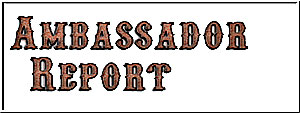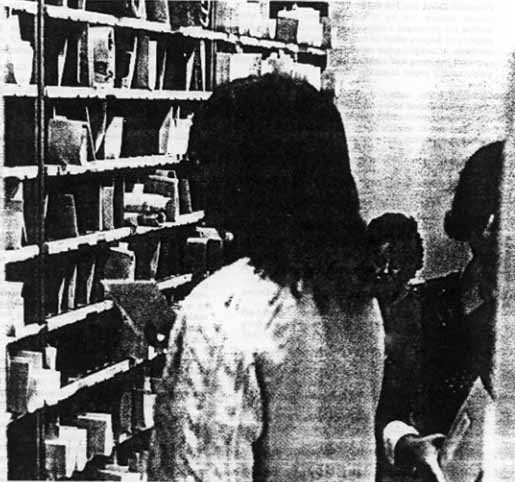
MAIL CENSORSHIP SPARKS STUDENT PROTEST
The third week of February, 1976, witnessed another milestone in Ambassador College history: it's first student protest. The object of their outrage was nothing less than the officially-sanctioned censorship of personal mail.
Early in February, 50 introductory letters from AMBASSADOR REVIEW were sent to specific students living on the Ambassador College campus. One week later a phone survey by the REVIEW revealed that not one of the students had received his letter. After this discovery was made, the AMBASSADOR REVIEW staff sent out a second set of letters, at the same time notifying the Pasadena Postmaster of the mailing. Fortunately, this time the mail was not "lost". Unfortunately, however, the college mail clerk did not distribute the individually addressed envelopes. Instead, acting on orders, she placed notes in the student mail-boxes informing the students that their mail was being held for them. When they requested it, the clerk "encouraged" many not to accept the material. Some were upset enough by this procedural error" to voice complaints with Dean Oehlman. Other students mailed the envelopes back unopened.
The college administration, seeking to protect the ideological insulation of the campus, then decided to take action against any future influx of "dangerous" mail. On February 1-3 the college legal department issued a memo to all students requiring their signature on a legal document. entitled "Consent to college mail procedure". This would give the administration the right to prohibit the delivery of any "material deemed objectionable by the college"; the memo continued, "the same shall be collected, returned to sender, or otherwise disposed of."
The reaction came immediately. An estimated 300 students refused to sign the document. It was sent back to Dean Oehlman's office by the score, some with indignant comments and also a swastika or two! Even the PORTFOLIO, the official newspaper of the college, posted a copy of the memo on its office bulletin board with mocking additions made to the contents.
On February 26, having to postpone his trip to Egypt, President Garner Ted Armstrong conducted a lengthy meeting with the student council. The following day, after being briefed on the entire situation, he issued a personal memo to all students. This memo set up a temporary arrangement in which no mail would be censored, with the exception that "objectionable" material would remain in a common receptacle accessible to all who were willing to "dig for it". He also stated that a long term solution to "the problem" would be individual, numbered, private boxes. This arrangement seemed to most to be fair and a strained tranquility was restored. But, with predictable Armstrong form, Ted donned his ministerial cap and in a Sabbath sermon the next day verbally flogged the students in the name of Jesus Christ and assured them that they did have freedom at Ambassador College ... the freedom to pack their bags and leave anytime they want.
AMBASSADOR REVIEW contacted KABC-TV about the situation. On March 11 AMBASSADOR REVIEW publishers, John Trechak and Tim Nugent were interviewed on television by Wayne Satz of KABC-Channel 7 Eyewitness News. Ambassador officials, however, refused to comment. Then, after a week of persistent phone calls by KABC, Stan Rader came forward for the cameras. He refused to allow any students to be interviewed by newsmen and categorically denied all charges.
A few days later, when Mr. Nugent personally contacted Stan Rader, in an attempt to ensure delivery of all AMBASSADOR REVIEW material, he was informed that he would not be allowed on campus to talk to any students about their mail.
The latest incident in this bizarre chain of events was the errection of a nine-foot-high wall around the student mail-boxes. Students now have access to their mail only at certain restricted times during the day and then only under the watchful eye of the postal clerk, in keeping with the new international flavor of "the Work", Ambassador College can now boast of its own "Berlin Wall".

